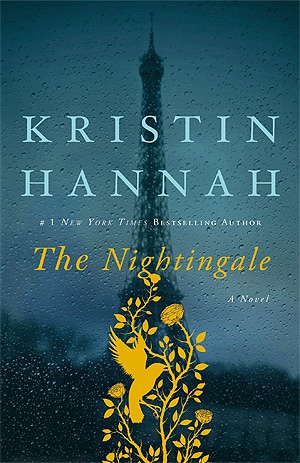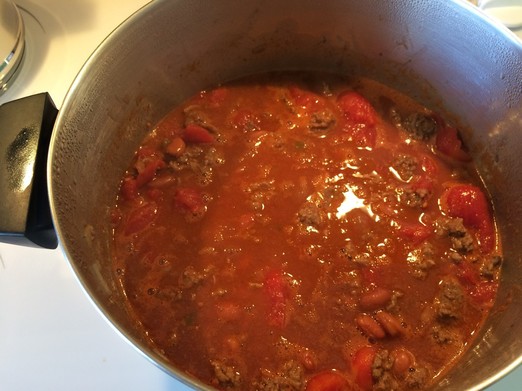
The Nightingale is a masterpiece. From the very first page, the reader is drawn into the story of Isabelle and Vianne, in German occupied France during WWII. It's a time period to which I'm not naturally drawn. But, after a friend recommended the book, I took a chance. You should, too.
I love the way the book starts like the movie, Titanic, when the narrator is an old woman, and then takes us into the action of 1939 France. I connected to older sister Vianne immediately, but beautiful Isabelle drew me into her story, as well. I know history book facts of WWII, and very little of France's involvement in the war. After reading The Nightingale, my heart literally aches for the survivors.
The characters are so well drawn, you laugh with them, cry with them, curse at them, and sigh for them. I found myself questioning my own courage, wondering how I would survive what these characters were put through, knowing that, although this book is fiction, I'm sure things happened in real life just as they did in the story.
Everyday life was so well portrayed: the ration lines, what people used to keep warm, right down to eating stale bread with homemade jam. And the atrocities: shootings, whippings, the sights, the smells; there were several nights where I woke from dreams of Nazis on motorbikes, and snarling guard dogs.
I especially liked the plot of Captain Beck living with Vianne. A German soldier living with a French citizen? I know billeting soldiers has been done in all wars, but it didn't cross my mind for WWII. He brought the whole idea of hating the enemy into question, especially when so many French policemen were aiding the Germans. And then there's Von Richter. Without giving too much away, I'll just say I avoided reading about him at night.
Isabelle's bravery is astounding, yet I found Vianne, attempting to maintain a normal life for her daughter while their world is blown apart, braver. She didn't do anything spectacular, on the surface, yet how many of us could accept the horror going on around us and keep striving for normalcy? How many of us could do what she did for Isabelle in the Barn scene? I was up late that night after reading that part.
By introducing Captain Beck into the book, the author made readers question their perception of WWII, and the Enemy. Do you hate him because he's a German soldier? Do you like him for how he treats Vianne and Sophie?
And would you choose the same decision as Vianne when she makes that one discovery near the end of the book? Could you live with that decision as she did? Could you embrace it? Or would it tear you up over time, and destroy all your other relationships?
That's the sign of a great book, and writer. The author doesn't preach; she doesn't foist her beliefs on the reader. She holds up choices, decisions, and lets the reader come to their own conclusion.
I loved every part of this book, and would read it again. The descriptions, the dialogue, the setting, are as much a part of the story as the characters. Knowing that this will become a movie, I can only hope that Hollywood breaks from its self-serving role and does this novel justice by keeping close to the plot. They can't improve on perfection, and I hope they don't try.






 RSS Feed
RSS Feed
